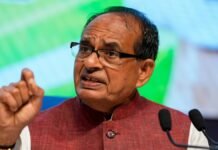
Brazil: In a significant move, Brazil has joined the growing list of countries banning the social media platform X, formerly known as Twitter. This decision follows a ruling by the Brazilian Supreme Court, marking a new chapter in the ongoing global scrutiny of the platform.
The Allegations and the Ban
The core issue revolves around X’s failure to appoint a legal representative in Brazil within the stipulated timeframe. This non-compliance led Brazil’s Supreme Federal Court Minister, Alexandre de Moraes, to order the immediate and complete suspension of X. The ban will remain in effect until X complies with all court orders and pays the prescribed fines.
Timeline of Events
The controversy began in April when Brazilian judges banned several X accounts for allegedly spreading false information. This action sparked a heated response from X’s owner, Elon Musk, who argued that free speech is fundamental to democracy. Musk accused the unelected Brazilian judges of undermining democracy under political pressure.
Global Context
Brazil is not the first country to take such action against X. Earlier in April, Pakistan also banned the platform, citing national security concerns⁴. These bans highlight the increasing tension between social media platforms and national governments over issues of compliance, misinformation, and free speech.

Impact and Reactions
The ban has significant implications for X’s operations in Brazil, one of its largest markets. The platform’s suspension affects millions of users and raises questions about the balance between regulation and free speech in the digital age. X’s CEO, Linda Yaccarino, expressed her disappointment, stating that the ban denies Brazilians access to the platform and undermines the country’s commitment to free speech.
As the legal battle continues, the situation in Brazil serves as a critical case study in the global debate over social media regulation. The outcome will likely influence how other countries approach similar issues, shaping the future of digital communication worldwide.




















































